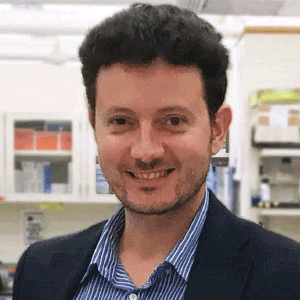Titles + affiliations
Researcher
Dana-Farber Cancer Institute
Research
Generation of “Stealth” Tyrosine Kinase Receptors for an Immunotherapy Resistant Hematopoiesis
Summary
Acute myeloid leukemia (AML) is the most common leukemia in adults and the second most common in children. Despite recent advances and diffuse use of therapeutic bone marrow transplants, AML is still associated with a dismal outcome for more than 50% of patients. Innovations in gene engineering have made it possible to reprogram immune cells to attack specific targets on cancer cells, allowing the first adoptive cellular immunotherapies, known as CAR T cells, to be approved by the FDA for the treatment B lymphoblastic leukemia (B-ALL). A similar approach is currently under development for AML, but in contrast to B-ALL, there is no leukemia-specific target that is amenable to targeting by immune cells without incurring severe adverse effects. This is due to the great similarity between leukemia cells and normal bone marrow stem cells, which would be killed along with the targeted tumor cells, leading to anemia, low white blood cells, low platelets, and susceptibility to infections and hemorrhage. To create a new treatment strategy for high-risk AML patients, we successfully modify normal bone marrow stem cells used for allogeneic transplantation to make them resistant to targeted therapies such as CAR T cells. In our preclinical studies, this strategy allowed the administration of highly effective immunotherapies targeting a protein essential for tumor survival without the risk of severe toxicity on the healthy tissue counterpart.
Impact
The results from this project showed that our therapeutic approach works. This data will allow us to be competitive for both federal and industry grants that will enable the full development of our project, followed by clinical trials in a few years.

Leukemia Research Foundation grant
$100K awarded in 2021
Disease focus
Acute myeloid leukemia (AML)
Research focus
Treatment (immunotherapy)
